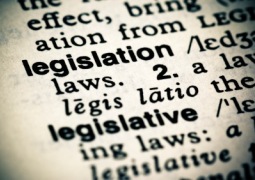
The Portfolio Committee on Public Works and Infrastructure concluded the virtual oral public hearings on the Expropriation yesterday. The committee listened to representatives from organisations and individuals expressing different opinions on the bill.
Ms Pretty Olifant, an entrepreneur from KwaZulu-Natal, supported the bill, saying: “Our family had a land, but lost it through dispossession. When we wanted to claim it, we were ironically told to produce evidence.” Her family needs land for traditional medicine and to have the ownership of its natural resources.
A representative of the Transvaal Landbou Unie, Mr Bennie van Zyl, told the committee that farming is an economic activity, part of the free market economy and should be treated as such. The bill will chase away investors, he said, because no investor will invest assets in a country in which they can be taken away without compensation. In his view, this bill will steal their children’s future and will bring poverty in its wake. “We need investment and entrepreneurs, not expropriation. The question to be asked is, will the market accept this bill? Or is it a bill that seeks to save the face of the ANC than to make this country prosperous?”
The African National Congress Member of the Western Cape Provincial Legislature, Mr Cameroon Dugmore, said the bill is a tool to redistribute agricultural and industrial land and to bring about land restitution as a means to address the injustices of the past. He lauded the public participation process as a critical undertaking that will give voice to the landless and various sectors of society to ensure that the colonial legacy of dispossession.
Mr Dugmore called on the publication of the land audit to establish the full extent of land resources, especially in the Western Cape, where land ownership is skewed in favour a white minority that owns 70.7% of the prime urban land.
A representative of the Cape Flats Communities, Mr Faiez Jacobs, is of the view that the bill will address a dream deferred, a dream that is now in the realm of a possibility.” As victims of dispossessed families, we still feel the trauma and bear the deep scars of land dispossession. We are here to be seen and be listened to, and for our concerns to be taken into consideration,” he said.
The Congress of the South African Trade Unions’ representative, Mr Mathew Parks, reiterated that it’s the obligation of the state to address the injustices of the past and this bill is a direct response to that. “That is why we need just and equitable access to land. If not, we will be faced with constitutional crisis.”
The representative of Agriculture Business Chamber, Mr Theo Boshoff, stated that they support the bill and acknowledge the need for land reform. However, they are of the view that there should be an equitable balance between value and compensation.
The Leader of the House of Traditional Leaders, Mr Sipho Mahlangu, made it clear that they are against any attempt to expropriate communal land under their jurisdiction. “We are of the view that the bill should exempt land in our jurisdiction from expropriation.” He also recommended that the Expropriation Authority should not be vested in local government because it can be a source of conflict of interest and defeat its intended objective.
Abel Mputing
26 March 2021

